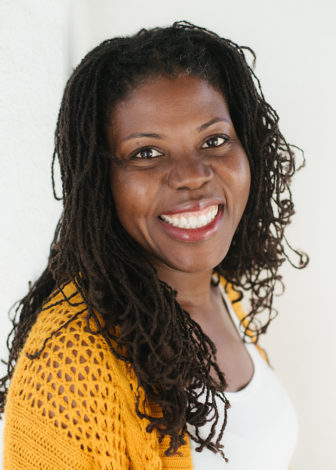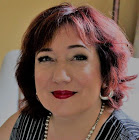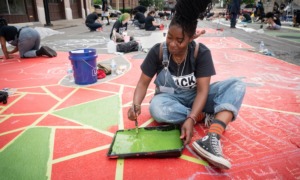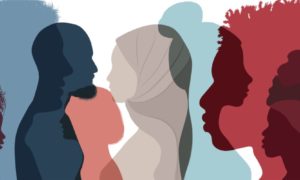
Ollyy/Shutterstock
.
A group of out-of-school time professionals at the 2019 National AfterSchool Association convention in June facilitated a two-hour Leadership Institute, an opportunity to delve deeply into a key issue in the field.
They focused on facets of equity and access. The presenters and facilitators were, for the most part, chapter authors in the third volume of the Current Issues in Out-of-School Time series published by Information Age Press. (We are the editors of this volume.)
Most of the feedback afterwards was positive. We observed a participant articulating her struggles as a Latinx nonprofit manager, and others who owned and accepted the responsibilities of privilege and who truly wanted to learn how to address inequitable dynamics at their agencies. The conversations were, at minimum, intense, and certainly meaningful.

Femi Vance
One outlier, however, was a funder who reported that she was offended by the presentation on how to reconsider the funding process.
The presentation, “How to Rethink the RFP Process,” was by a longtime youth practitioner who runs a small organization and has served on the board of a small foundation that funds arts-based organizations. It clearly and succinctly laid out the premise that in the past funders have — and many continue to — view grantees from a deficit and poverty framework.
It analyzed the request for proposal (RFP) process in minute detail, pointing out how the application process both disincentivizes and disempowers community-based organizations, many run by people of color in black and brown communities. The presentation ended upbeat and hopeful, pointing to organizations such as The Whitman Institute that advocate for “trust-based philanthropy” and promote changing the language of the RFP to articulate an asset- and strength-based approach to grantees.
The funder’s initial response to the presentation stands in stark contrast to the thoughtful examination of systems and practices that we heard from most participants. This contrast is illustrative of the range of responses that discussions about power, privilege and oppression can, and likely will, evoke in people.
In the U.S., equity and access are sensitive topics and, as a field, we are just now coming to grips with the effects of a legacy of institutional racism. We are also just beginning to wrap our heads around our privilege, whether that be class-based or race/ethnicity-based. It is not easy, and often painful, to reflect on our biases and acknowledge that we have at times been implicit in perpetuating inequity.

Sara Hill
There will be those who are unprepared to examine how privilege, biases and power show up in their institutions, let alone in their own lives. But to make progress we must continue to have these thought-provoking discussions. We must remember that dismantling the crippling effects of institutional racism and oppression is a long-term goal.
We will need all the tools in our toolbox — training, books, brave spaces — when we encounter reluctance to chink away at the entrenched thinking that has reigned for hundreds of years. We must not be deterred. Instead, we must ask ourselves, how else might we invite honest reflection, critical dialogue and conscious action?
Femi Vance, Ph.D., is a researcher at American Institutes for Research, where she researches and evaluates out-of-school time programs and provides technical assistance to youth development professionals. She strives to translate her research into practice via board service, training and practical and relevant blog posts and guides.
Sara Hill, Ed.D., has 25-plus years of experience in youth development, curriculum and instruction, nonprofit management, evaluation and research. She has designed and delivered professional development for hundreds of educators at all levels, including youth and staff at community-based organizations, public school teachers and administrators.































